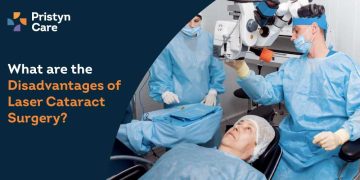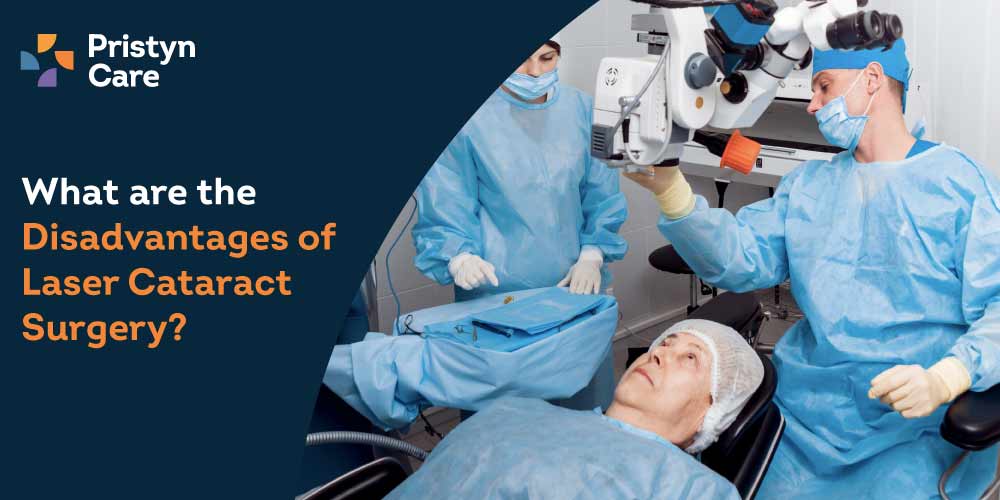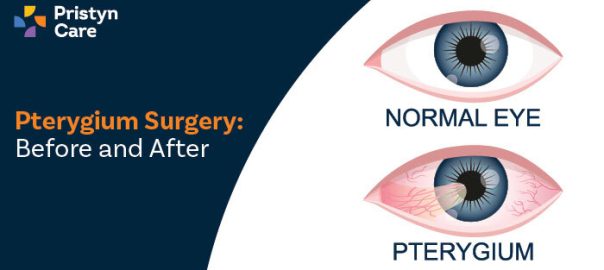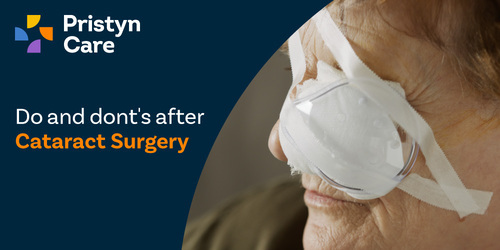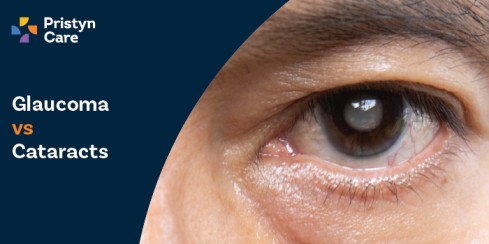![]() Views: 395
Views: 395
What are the Disadvantages of Laser Cataract Surgery?
Are you considering laser cataract surgery but feeling apprehensive about potential downsides? While this advanced procedure offers precision and convenience, it is essential to understand that it may not be the perfect solution for everyone. So, what are the disadvantages of laser cataract surgery?
Dedicated Support at Every Step!
Our Doctors are available 24 hours a day, 7 days a week to help you!
Call Us9513-316-643Before making your decision, it is crucial to weigh the risks alongside the benefits. In this post, we will explore the less-discussed aspects of laser cataract surgery, helping you make a well-informed choice. Whether you are concerned about costs, possible complications, or suitability for your specific condition, this article will provide the insights you need to proceed confidently.
Table of Contents
Disadvantages of Laser Cataract Surgery
Laser cataract surgery is highly regarded for its accuracy and modern technology, but there are several disadvantages that patients should consider before choosing this method.
1. Higher Costs
The significant cost associated with laser cataract surgery remains one of the major drawbacks. In addition to the procedure's upfront expenses, there may be additional costs for specialised equipment and highly skilled personnel. These financial factors can make laser cataract surgery inaccessible to many patients, particularly those without extensive health insurance.
Moreover, the cost-benefit ratio may not be favourable for all patients, especially when considering that traditional cataract surgery may achieve similar results at a lower cost.
2. Suitability and Availability
Not all patients are ideal candidates for laser cataract surgery due to specific medical conditions or anatomical factors, such as dense cataracts or previous eye surgeries. Additionally, the limited availability of laser technology in certain regions can make it challenging for patients to access this treatment.
This can lead to delays in receiving necessary care, which may affect the overall success of the procedure.
3. Extended Procedure Time
Laser cataract surgery typically requires more time to perform than traditional methods, which can increase the risk of complications associated with longer surgical procedures, such as anaesthesia-related issues.
The extended duration can also lead to increased stress and discomfort for the patient. Furthermore, the longer surgery time may result in higher costs due to the prolonged use of surgical facilities and staff.
4. Postoperative Complications
While laser cataract surgery is generally safe, there is a risk of postoperative complications such as inflammation, infection, or corneal swelling. These complications may require additional medical interventions, such as medications or even further surgery, which can extend recovery time and increase overall costs.
Patients must be closely monitored to ensure that any complications are promptly addressed to avoid long-term issues.
5. Recovery and Visual Acuity
The recovery period after laser cataract surgery can be longer and more complex than anticipated, with some patients experiencing persistent visual disturbances like halos or glare.
These issues can interfere with daily activities and may require additional treatments or corrective procedures. Additionally, the expected improvement in visual acuity may not always be achieved, leading to patient dissatisfaction and the need for further interventions.
6. Risk of Dry Eye
Laser cataract surgery can exacerbate dry eye symptoms, especially in patients who already suffer from this condition. This can lead to ongoing discomfort and may necessitate long-term treatment with artificial tears or other therapies.
The impact on tear production and eye surface health can significantly affect the overall comfort and visual outcomes for the patient.
7. Dependence on Technology
The success of laser cataract surgery is heavily reliant on the advanced technology used during the procedure. Any malfunction or error in the equipment can lead to suboptimal results, which may necessitate further corrective surgery.
This dependence on technology also requires regular maintenance and updates, which can add to the overall cost of the procedure and impact its accessibility
8. Limited Improvement in Certain Cases
For patients with uncomplicated cataracts, the additional benefits of laser cataract surgery may not justify the increased costs and potential risks. In such cases, traditional cataract surgery may provide comparable outcomes without the financial burden or extended recovery associated with laser procedures.
This limitation highlights the importance of individualised patient assessment to determine the most appropriate surgical approach.
9. Insurance Coverage Limitations
Many insurance plans do not fully cover laser cataract surgery, as it is often considered an elective or premium procedure. This means patients may face higher out-of-pocket expenses compared to traditional cataract surgery, which is more likely to be covered by insurance.
The financial burden of laser surgery can be a significant barrier for many, especially those on fixed incomes or without comprehensive insurance plans.
All in all, when contemplating "what are the disadvantages of laser cataract surgery?", it is essential to weigh these factors carefully with your ophthalmologist to make an informed decision.
No Cost EMI, Hassle-free Insurance Approval
Last Say
When evaluating laser cataract surgery, it is crucial to consider "what are the disadvantages of laser cataract surgery?" This procedure, while offering advanced precision, comes with several drawbacks. High costs, often not covered by insurance, can make it financially challenging for many patients. The reliance on sophisticated technology increases the risk of equipment malfunction, which can lead to complications.
Additionally, some patients may experience extended recovery periods, dry eye syndrome, or limited improvement in certain cases. These factors make it imperative for individuals to thoroughly discuss potential risks and benefits with their ophthalmologist to determine if laser cataract surgery is the most suitable option for their specific needs.
Frequently Asked Questions
- Is laser cataract surgery painful?
Laser cataract surgery is generally not painful due to the use of local anaesthesia, which numbs the eye during the procedure. Patients might feel some pressure, but this is typically not uncomfortable. Postoperative discomfort is minimal and is usually managed with prescribed eye drops. Any mild irritation experienced post-surgery typically resolves as the eye heals within a few days.
How long does it take to recover from laser cataract surgery?
Recovery from laser cataract surgery usually takes a few weeks, with noticeable vision improvement within days. Full stabilisation of vision may take up to a month. Following postoperative care instructions, such as using prescribed eye drops and avoiding strenuous activities, is essential for a smooth and successful recovery.
Are there any long-term risks associated with laser cataract surgery?
Long-term risks are rare but can include posterior capsular opacification (PCO), which may cause blurred vision, and persistent dry eye symptoms. These conditions are usually manageable with additional treatments, such as a YAG laser procedure for PCO or long-term use of artificial tears for dry eye.
How does laser cataract surgery differ from traditional cataract surgery?
Laser cataract surgery uses a femtosecond laser to make precise incisions and soften the cataract, whereas traditional surgery relies on manual tools. The laser method offers greater precision, especially for astigmatism correction, but it is typically more expensive and may not be covered by insurance.
Can laser cataract surgery correct astigmatism?
Yes, laser cataract surgery can correct astigmatism. The precision of the laser allows for customised corneal incisions that can reshape the cornea and reduce or eliminate astigmatism, potentially reducing the patient's dependence on corrective lenses after surgery.
Is laser cataract surgery covered by insurance?
Laser cataract surgery is often not fully covered by insurance, as it is considered an elective procedure due to its advanced technology. Patients may face significant out-of-pocket costs for the laser surgery itself and any premium intraocular lenses (IOLs) used during the procedure.
Who is a good candidate for laser cataract surgery?
Ideal candidates for laser cataract surgery include those with cataracts who desire a more precise surgical option, especially if they have additional refractive errors like astigmatism. Candidates should have healthy corneas and no severe ocular conditions that could complicate the surgery.
- Can both eyes be treated at the same time with laser cataract surgery?
Typically, surgeons recommend treating one eye at a time, with a gap of one to four weeks between surgeries. This approach allows the first eye to heal and vision to stabilise before the second eye undergoes surgery, reducing the risk of complications.
- What type of lens is used in laser cataract surgery?
Intraocular lenses (IOLs) are used in laser cataract surgery, including monofocal, multifocal, and toric lenses. The choice of lens depends on the patient’s vision needs and lifestyle, as well as the surgeon’s recommendation based on the specific characteristics of the patient’s eye.
- How soon can I resume normal activities after laser cataract surgery?
Most patients can resume non-strenuous activities within a few days after laser cataract surgery. However, it is recommended to avoid heavy lifting, vigorous exercise, and driving until your vision stabilises, which usually occurs within four to six weeks. Always follow your surgeon's specific advice for a smooth recovery.

